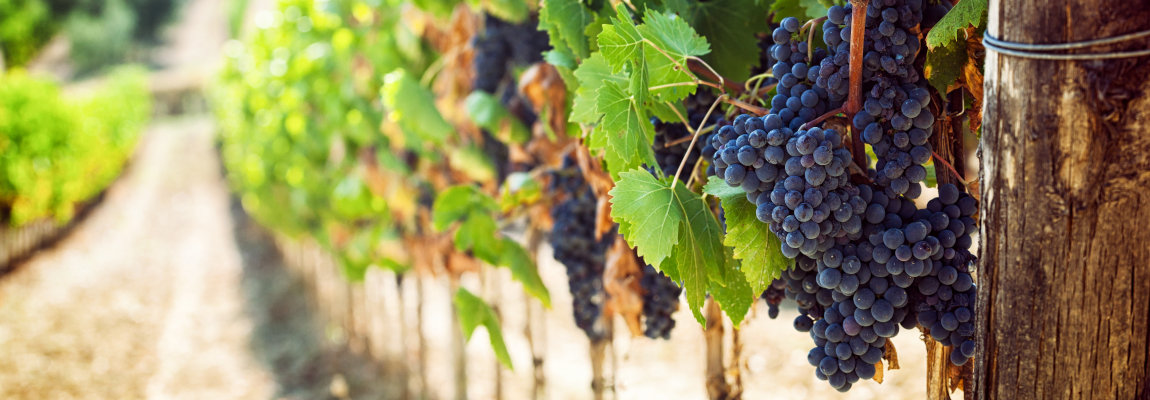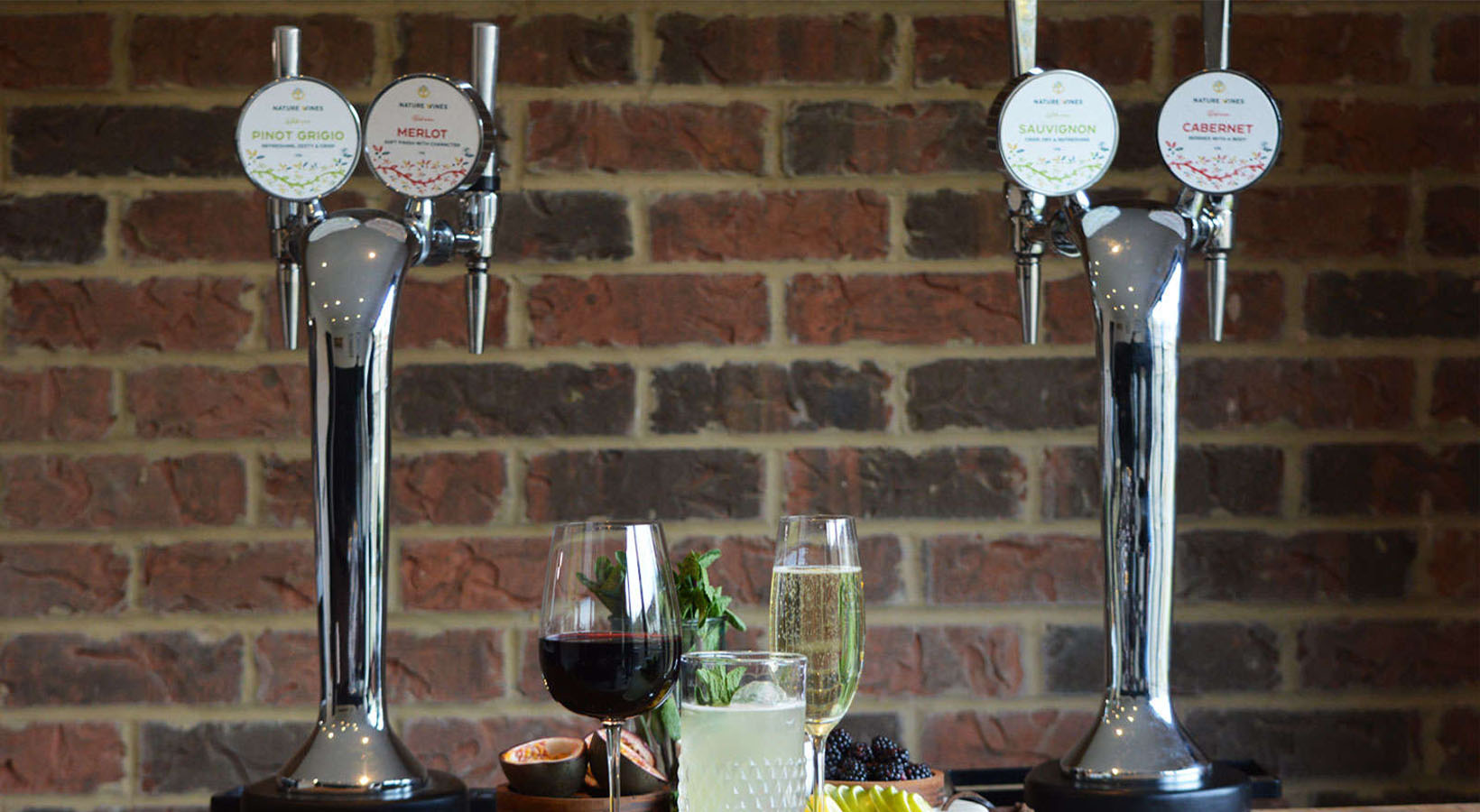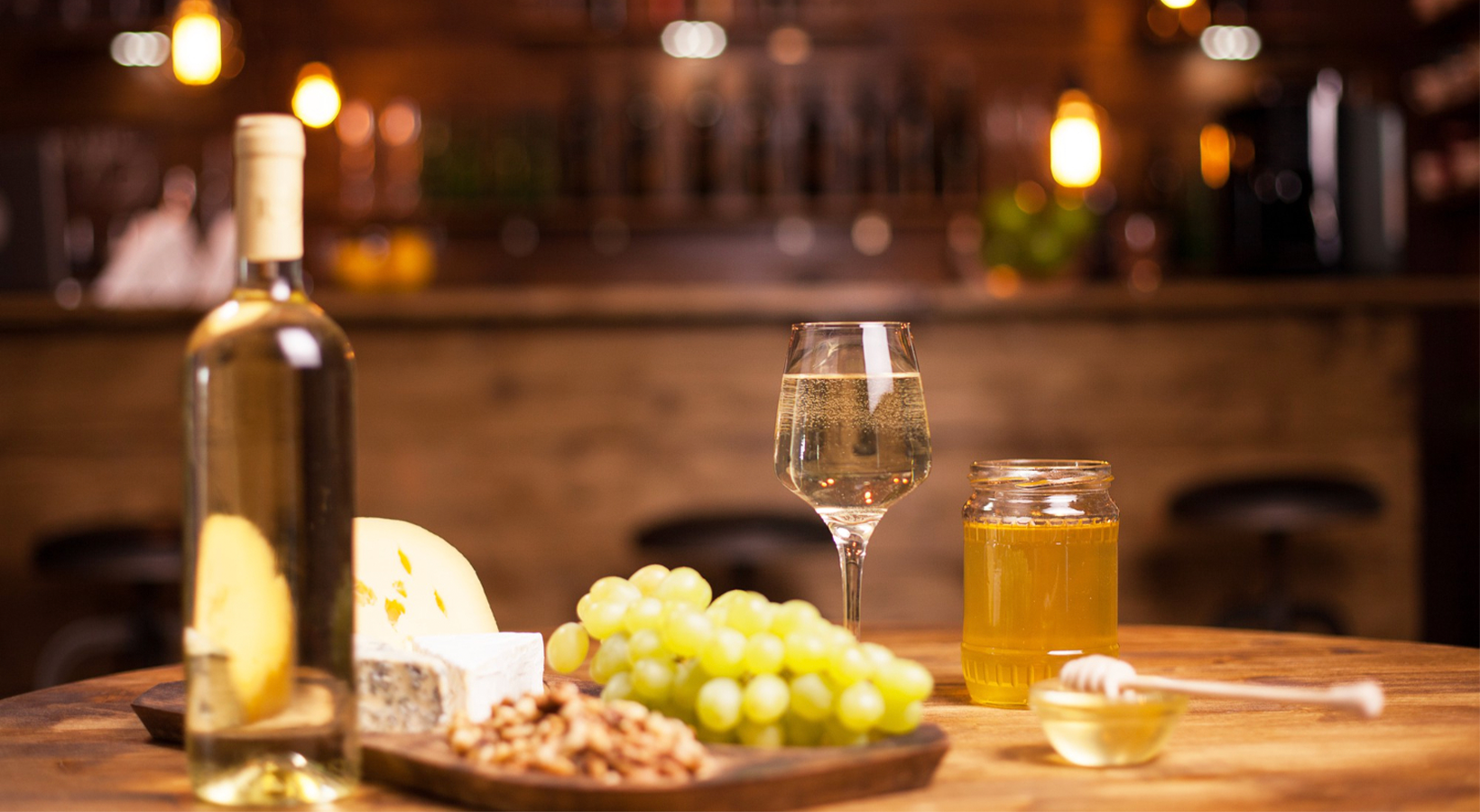
Here’s What You Need To Know About Serving Draft Cocktails
Draft cocktails have evolved from a passing trend, to an inevitable staple at trendy bars and popular restaurants across the UK. But what exactly is
Next Day Delivery
You probably already know that wine contains tannin, but you might not know what tannins is and how they affect your enjoyment (or otherwise) of wine.
Tannins are a type of bitter and astringent chemical compounds, found abundantly in plants, seeds, wood, leaves, and fruit skins, including grapes! The scientific name for these compounds is polyphenols. Tannin is also known as tannic acid, and is one of the contributors to acidity of a wine. The word originates from the tanning process used in making leather.
Tannins are also found in other food and drink. Black tea is a great example. Other high-tannin foods include dark chocolate, pomegranate, nuts and perhaps not surprisingly, grape juice.
Where do tannins in wine come from?
During the fermentation process, tannins (polyphenols) are released from the skins, seeds and stems of grapes as they soak in the grape juice. As the alcohol is produced, more colour and tannins are released into the forming wine. The longer the fermentation process, the more tannic acid is released. Tannins are also released from the oak of the barrels in which a wine is fermented or aged.

Tannins bind with other proteins, and an abundant source of protein is human saliva! This binding creates the astringent, drying sensation in your mouth. It’s why some Cabernet wines have a dryness to them. Tannins also act as a natural antioxidant, which protects the wine from bacteria. In nature, tannins make unripe fruits and seeds unpalatable, dissuading animals from eating them.
Tannins are all about textures and astringency, rather than aroma, flavour or colour. A wine will have differing quantities and qualities of tannin, which will impact the drinker’s experience. Would you describe the wine as being silky smooth, soft and velvety, or does it come across as chalky, gritty or coarse? Winemakers can use tannins to build volume. Think about the mouthfeel you are getting the next time you taste a good (or bad!) wine.
You will no doubt have come across newspapers claiming that ‘drinking red wine is good for your heart’, or something similar. Much of those headlines comes from a study looking at the relationship between tannins and human health. Some scientists believe that the high-tannin wine making methods used in the South of France and Sardinia, may contribute to the longevity of residents in those areas. We are not going to claim that drinking a great Shiraz is going to make you live longer, but it’s nice to know that some scientists think it might!
Cabernet Sauvignon is the most obvious high tannin wine. The hints of berries and tobacco in a Syrah come from the high tannin content too. Petit Verdot, Monastrell and the legendary Italian Nebbiolo all boast high tannin content.
Typically white wines have fewer tannins than rosé and red wines. White wines like Sauvignon Blanc and Pinot Grigio, are the best place to start for those who aren’t fans of tannins. Some rosé wines also have fewer tannins than traditional red wines.

Alas, high tannin grapes and production methods do not make for a good sparkling wine. Where bubbles provide the textual elements, their magnifying effect can make the astringency of any tannin come across as very bitter.
So next time you have a full-bodied glass of red, or indeed a steaming mug of black tea, stop to think about the impact of the tannin. How does it feel in your mouth? How does it add to the flavour and taste? Tannins are an integral part of the wine experience, and we hope that now you know just a little more about them.
Discover more about the unique history of wine, or take a look at our bottled wines and wines on tap! If you’re looking for something else, we can also provide a range of on-tap cocktails, single-serve cocktails and dispensing equipment.
Share Post:

Draft cocktails have evolved from a passing trend, to an inevitable staple at trendy bars and popular restaurants across the UK. But what exactly is

Wine on tap is growing in popularity for its practicality and value. Managing operations within a restaurant environment may feel like juggling one hundred things

Most guides for pairing food and wine are overly strict. Truthfully, you can eat whatever you want while drinking whichever wine you choose. There are
© All Rights Reserved
Approved Alcohol Supplier – AWRS No: XWAW00000103629
VAT No: GB 113 272 944
Co Reg: 07645413
Registered Office: 75 The Mall, Swindon, Wiltshire, SN1 4JE
Approved Alcohol Supplier – AWRS No: XWAW00000103629
VAT No: GB 113 272 944
Co Reg: 07645413
Registered Office: 75 The Mall, Swindon, Wiltshire, SN1 4JE
Send us your details for a free sample